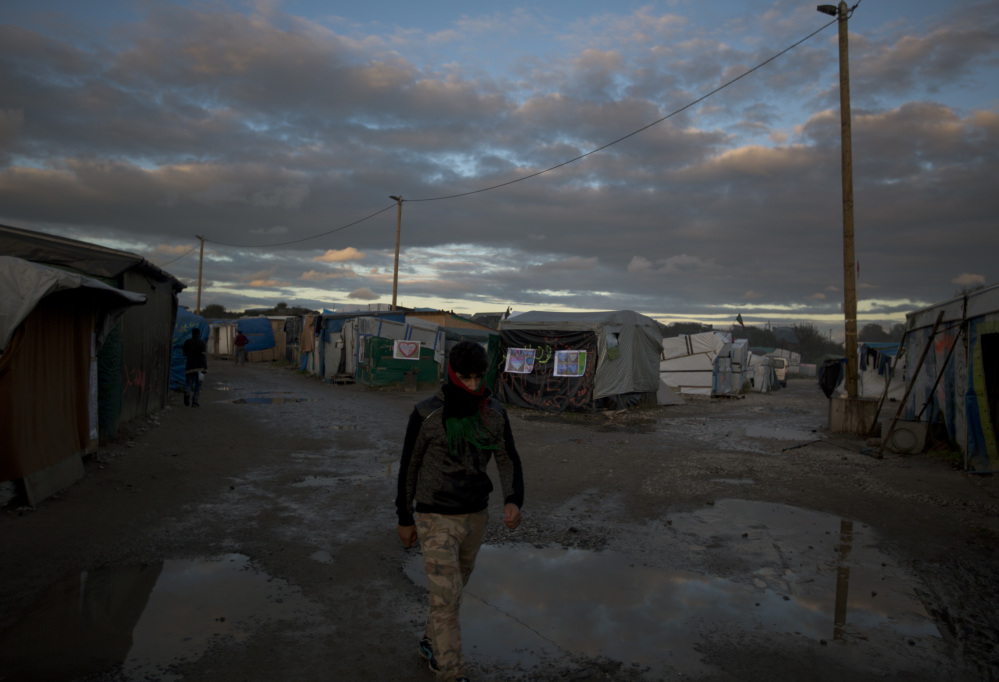CALAIS, France — When France begins demolition of the “Jungle” migrant camp here on Monday, the fate of some 1,300 children will remain largely unanswered.
After a long, heated campaign led by humanitarian organizations, the British government began accepting a small number of unaccompanied child refugees from Calais this week. But hundreds more may not qualify for asylum before the Jungle is destroyed, and time is running out. On Friday, Interior Ministry officials said more than 7,500 places have been made available for the refugees living in the camp and that the minors remaining in France will be dispersed in special centers for teenagers where they won’t mingle with adults.
For the few children who are allowed to cross the 20 short miles of English Channel – more than 40, as of Friday – there is neither certainty nor peace, as a number of lawmakers have demanded mandatory dental checks to ensure that the incoming migrants are, in fact, minors.
“I’m not pandering to hysteria,” David Davies, a Conservative lawmaker, told the BBC on Wednesday. “If we want to help children, that’s great, I’m all in favor of that. But I’m not in favor of allowing people in their 20s to say, ‘I’m a child,’ and then to come into the U.K. and make a mockery of our rules.”
His comments followed the publication of a Home Office document obtained by the Daily Telegraph newspaper, in which 65 percent of refugees whose ages were disputed by British officials were found to be adults. The figures come from asylum applications made in 2015.
Meanwhile, as the first convoys of Calais children arrived in London this week, family members and locals with banners and balloons were on hand to greet the refugees. But British tabloids splashed pictures of the newcomers on their front pages.
Britain’s Home Office has dismissed the idea of screening by dental examination. “We do not use dental X-rays to confirm the ages of those seeking asylum in the UK,” it said in a statement. The office defended its process of assessing the age of the refugees, saying it works with French authorities and also that the office interviews candidates if there is uncertainty.
Inside of the Jungle, a swarm of children and teenagers crowded outside the camp’s makeshift youth center late Wednesday afternoon, seeking information from French and British volunteers about their chances for asylum in Britain. As young as 12 and as old as 18, those with shoes kicked soccer balls while they waited.
Amid the typical sounds of children at play, there was a palpable frustration as many were told they did not qualify, either because they have no immediate family in Britain or are over age 18.
Another boy, Sharif Sarfari, 17, said he has lived in the Jungle for 10 months now, having arrived alone from Afghanistan. He said he has tried every legal means of claiming asylum in Britain, where he hopes to finish his studies in engineering. Although in theory he would qualify, he said he has no proof that his age is 17, and thus no means of crossing the channel.
“If the legal way is not supporting me,” he said, “then I must go in the lorries. I told them I have friends there who will support me, but they are not accepting. So where do we go?”
By “lorries,” he meant the large freight trucks smugglers typically use for the illegal transport of migrants through the channel tunnel, often at great expense to migrants and usually without the drivers even knowing. It is not a safe passage: Throughout the past year, migrants have repeatedly died en route, mostly from suffocation.
Sarfari said he would continue trying to stowaway on one of those trucks, as he has nearly every night since his arrival. Well aware of the dangers involved, he said he had watched friends from the Jungle make the journey safely.
In theory, there are two categories of children eligible for asylum in Britain. The first are the “Dublin” children, who come under the Dublin III Regulation, a European Union law permitting the resettlement of refugee children under 18 in member states where they have family. The second are “Dubs” children, named for Alf Dubs, a Kindertransport survivor and House of Lords member who successfully pushed for an amendment earlier this year permitting migrant children without family to resettle in Britain.
Send questions/comments to the editors.



Success. Please wait for the page to reload. If the page does not reload within 5 seconds, please refresh the page.
Enter your email and password to access comments.
Hi, to comment on stories you must . This profile is in addition to your subscription and website login.
Already have a commenting profile? .
Invalid username/password.
Please check your email to confirm and complete your registration.
Only subscribers are eligible to post comments. Please subscribe or login first for digital access. Here’s why.
Use the form below to reset your password. When you've submitted your account email, we will send an email with a reset code.